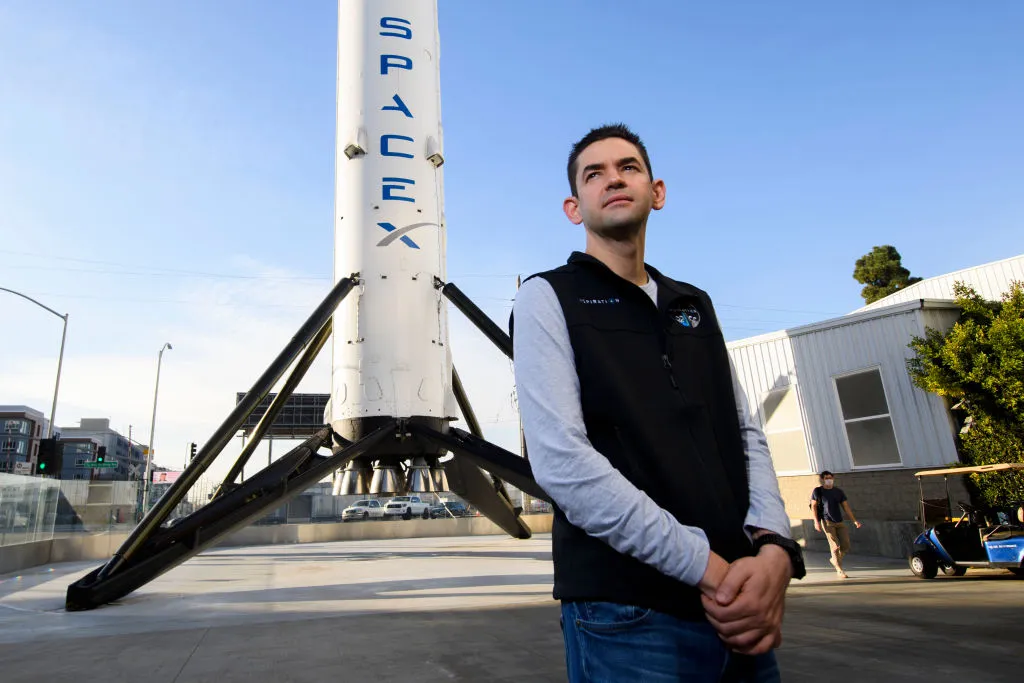US President-elect Donald Trump has nominated Jared Isaacman, a billionaire businessman and private astronaut, to lead NASA. Isaacman, who is best known as the founder and CEO of Shift4 Payments, has made a name for himself in the commercial spaceflight industry through his collaborations with Elon Musk’s SpaceX. However, his ties to Musk—who is set to co-chair a government efficiency commission and is one of Trump’s closest advisors—could raise concerns about potential conflicts of interest.
At 41, Isaacman has already made history as the first private astronaut to perform a spacewalk. In September 2024, he stepped outside the Crew Dragon spacecraft during a mission under SpaceX’s Polaris program, which is a collaboration between Isaacman and Musk’s company. The spacewalk allowed Isaacman to look back at Earth from space while holding onto the spacecraft’s exterior.
Isaacman’s work with SpaceX has expanded beyond just spacewalks. In 2021, he led the all-civilian Inspiration4 mission, which was the first orbital mission with only private citizens onboard. He reportedly invested $200 million of his own money into this mission. As part of his ongoing partnership with SpaceX, Isaacman is involved in the Polaris program, which includes three planned missions.
Trump’s announcement of Isaacman’s nomination was made on Truth Social, where the president-elect expressed his confidence in Isaacman’s leadership. “I am delighted to nominate Jared Isaacman, an accomplished business leader, philanthropist, pilot, and astronaut, as Administrator of NASA,” Trump wrote. “Jared will drive NASA’s mission of discovery and inspiration, paving the way for groundbreaking achievements in space science, technology, and exploration.”
Isaacman’s role in advancing commercial spaceflight has made him a vocal advocate for the sector. He has frequently praised SpaceX for its vision of a thriving space economy, one that will create opportunities for people to live and work in space. After Trump’s announcement, Isaacman reaffirmed his belief in the potential of space exploration, saying, “At NASA, we will passionately pursue these possibilities.” His remarks indicate his commitment to expanding the space industry, both for exploration and for the future economic opportunities it could bring.
Born in Pennsylvania, Isaacman started his first business, which would later become Shift4 Payments, at the age of 16 in his family’s basement. His entrepreneurial success eventually allowed him to pursue his passion for aviation, and he is now a skilled pilot qualified to fly military aircraft. He has also set a world record for an around-the-world flight and has performed in airshows, further cementing his status as a seasoned aviator.
While Isaacman’s accomplishments in business and space are undeniable, his close relationship with Elon Musk and financial backing of SpaceX raise questions about potential conflicts of interest. Given Musk’s role in the government efficiency commission and his influence over commercial space ventures, some may wonder how Isaacman’s appointment could affect NASA’s decisions on space policy, especially concerning partnerships with private companies.
Despite these concerns, Trump’s nomination of Isaacman highlights his commitment to making space exploration a major priority in his administration. As the head of NASA, Isaacman could play a pivotal role in expanding commercial space travel, pushing for technological innovations, and enhancing the United States’ leadership in space exploration.
Isaacman’s nomination has sparked significant interest, particularly as it comes at a time when private companies like SpaceX are playing a larger role in space missions traditionally handled by government agencies. His background in both business and space exploration could give NASA the expertise it needs to embrace the rapidly evolving space industry, balancing public and private sector interests while furthering the agency’s scientific and exploratory goals.
As the space industry continues to evolve, Isaacman’s leadership could help shape NASA’s future, providing new opportunities for both scientific discovery and commercial growth in space. His appointment is set to be closely scrutinized, but it also offers a glimpse into the growing partnership between government and private space ventures.






